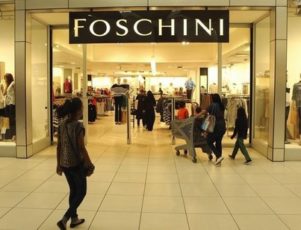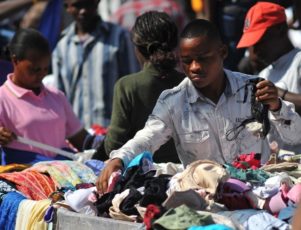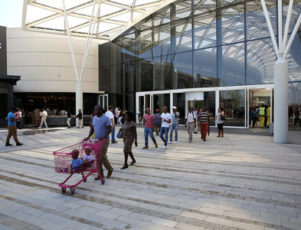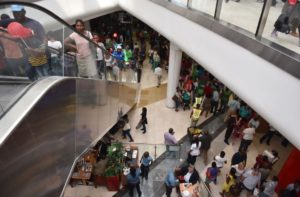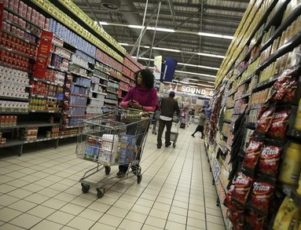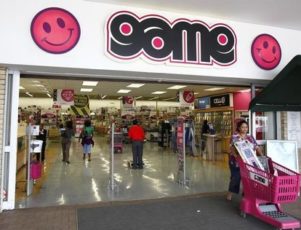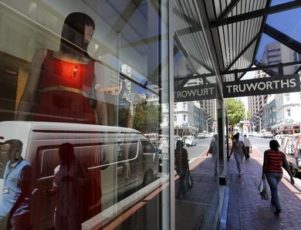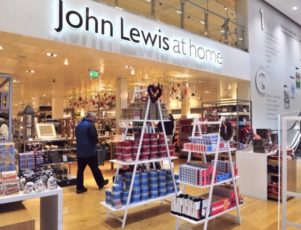Burundi, Kenya, Rwanda, Tanzania, and Uganda consider ending imports of used garments by 2019 in order to increase domestic production.
Five East African countries may ban sales of second-hand clothing from abroad – a staple of many residents’ wardrobes – in order to bolster domestic garment making.
Burundi, Kenya, Rwanda, Tanzania, and Uganda make up the East Africa Community (EAC), which directed its member countries to phase out textile and shoe imports by 2019. The heads of state of all five countries must agree before the limits could take effect.
The proposal comes as many African countries seek to increase manufacturing and other industries to fuel economic growth.
Charitable donations resold
Second-hand clothing, mostly from Europe and North America, are a mainstay of local clothing markets in Africa, according to Dr. Andrew Brooks, author of Clothing Poverty: The Hidden World of Fast Fashion and Second-hand Clothes.
In Uganda, for example, second-hand garments account for 81 percent of all clothing purchases, Brooks said.
East Africa imported more than $150 million worth of second-hand clothing in 2015. Brooks noted that the used clothing is less expensive than locally produced garments or even inexpensive new imports.
U.S., U.K. are largest exporters
Most of the second-hand clothing sold around the world comes from charitable donations by European and North American residents who are unaware the clothing will be sold, Brooks said.
The United States and the United Kingdom are by far the largest exporters of used clothing.
The United States exported used garments worth more than $685 million in 2013, according to United Nations data. Much of it went to Central and South America, Canada and Mexico but Tanzania and Angola also received major shares.
Uganda imports 1,500 tons of used clothing each year from the U.S. alone, according to the U.S. International Trade Commission.
The United Kingdom’s exports totaled more than $620 million with major shares going to Ghana, Benin, Kenya, and Togo.
Germany was the third largest exporter at more than $500 million, with large shares going to Cameroon and Angola.
Other major exporters are South Korea, The Netherlands, Belgium, Canada, Poland, Italy and Japan.
South Korea and Canada together exported $59 million worth of used clothes to Tanzania while the UK exported $42 million worth of used clothes to Kenya.
Regional industry declines

Garment manufacturing in Ghana
Brooks, a lecturer at King’s College in London, said local garment makers employed hundreds of thousands of people in East Africa before the debt crisis hit in the 1980s and 1990s when domestic producers struggled to compete and many factories closed.
In Kenya alone, a garment industry that employed 500,000 people was reduced to only about 20,000 garment workers today.
The East Africa Community pointed to the need to rebuild domestic production as it proposed the ban on second-hand imports.
“The region, like the other developing countries, is ready to transition into an industrial bloc with a higher level of production quality and manufacturing practices,” said Betty Maina, Kenya’s Principal Secretary at the EAC Ministry. “It will benefit industry and increase access to locally manufactured products in the region and create more employment opportunities.”
No ban on new clothing imports
Brooks noted that the ban does not include imports of new clothing, which could also undercut the domestic garment makers. While rebuilding the local garment industry may be beneficial in the long-term, higher prices could hurt local consumers.
In the near term, government would also suffer losses of tariffs collected from clothing importers. For example, Kenya collected $54 million in tariffs on 100,000 tons of imported used clothing in 2013.
Rwanda earlier this year nearly tripled its import duty on imported clothing from 35 percent to 100 percent in order to encourage purchases from the country’s lone textile mill. Two years ago, the factory was producing at 40 percent of capacity but that has dropped to 20 percent.
Comprehensive approach urged
To revive the garment industry, Brooks said, more comprehensive action than the ban must be taken.
These include improvements in transportation and power supplies to stabilize the distribution system as well as tax relief for factories and support for the sustainability of east Africa’s cotton sector.
“A revitalized local market would ultimately boost the (regional) economy by providing more jobs than the second-hand sector while retaining money that currently goes to Europe and the U.S. to pay for second-hand imports,” Brooks said.
Read more


